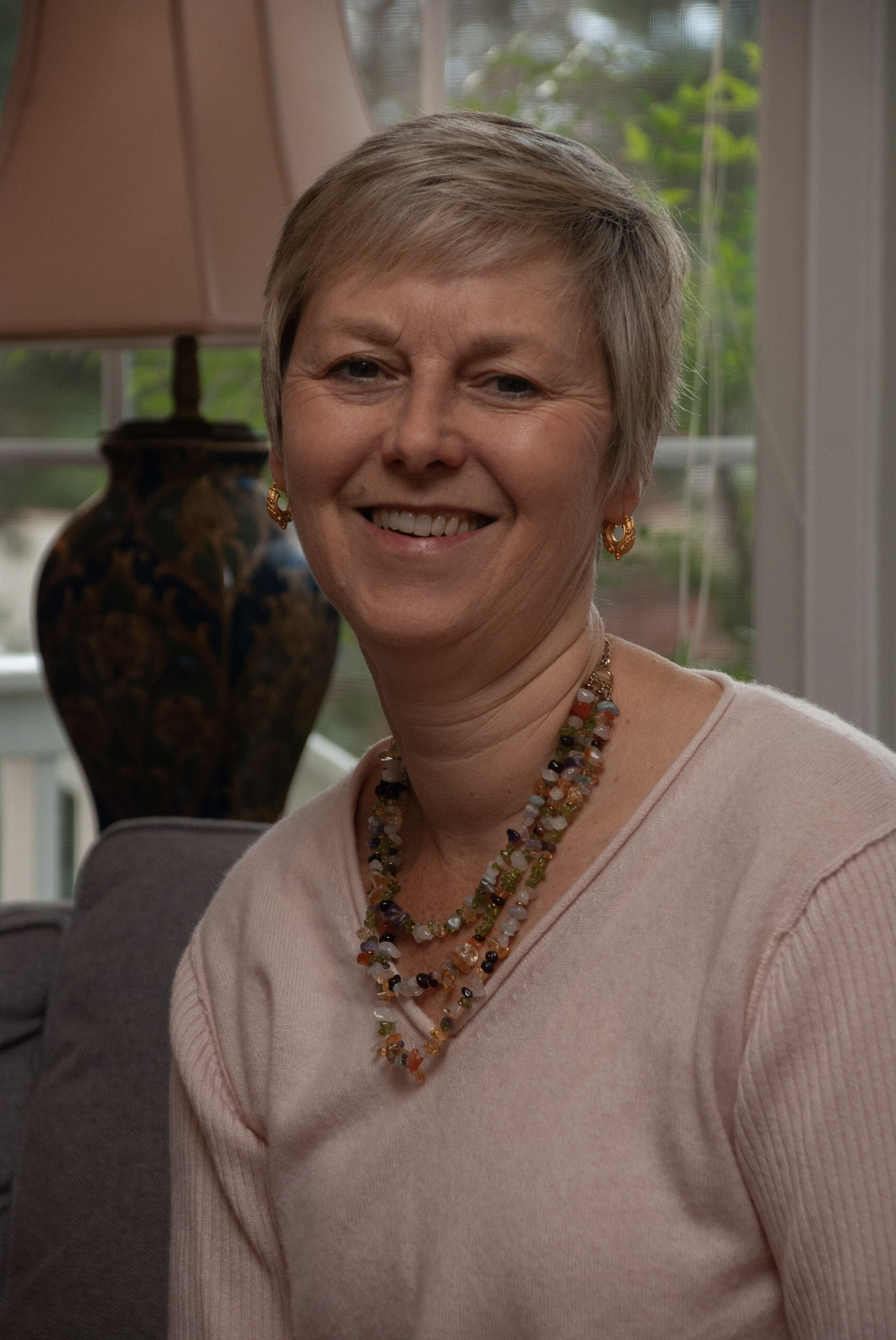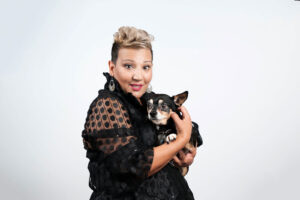To paraphrase T.S. Eliot, my body is a wasteland. That’s what comes to mind when I stand naked in front of a mirror and consider my reflection: a small bluish divot above my left collarbone from the erstwhile insertion of a mediport tube into my subclavian vein; a shiny two-inch slash just below my left collarbone from the mediport itself; two blue dots, one towards the top of my breastbone and one towards the bottom, tattoos required for radiation therapy. Then, the coup de grâce—two pseudo-breasts, whose garish lack of nipples is replaced by a long pink line from one side of each to the other, the right one enhanced by speckled red skin from 35 radiation treatments and subsequent irritated response to cold weather.
The reverberations of a cancer diagnosis and treatment are legion, but the physical manifestations are some of the hardest to forget. They confront you each day, and if I’m seeing them, I am well aware that my husband sees them as well. But what does he see? Does he, too think of me as a wasteland?
Of course, when I was first diagnosed and in the throes of treatment, thinking about the way I looked was not paramount. Getting through and staying alive felt like the priorities, and when one is undergoing surgery and chemotherapy, evidence of their assaults is obvious from head to toe. But as time went on, and as I healed from surgery, chemotherapy and radiation, concerns of staying alive transformed into concerns of how to live the life I now had in my battered but recovered body. A significant part of that life was intimacy, and now I needed to find my way back to feeling comfortable enough in my body, with all its dents and dings, to share it with my husband.
The reverberations of a cancer diagnosis and treatment are legion, but the physical manifestations are some of the hardest to forget.

The three of us have been through a lot—my husband, my body and myself. At first, intimacy disappeared altogether. Well, maybe that’s not exactly right. Our intimacy was transformed into him washing my hair, emptying my drains and changing my dressings. Within a week after my diagnosis, I had a mastectomy without any reconstruction because of the speed with which my cancer had attacked my breast and the desperation to get chemotherapy drugs into me as quickly as possible. I ended up being one-breasted for six years, thankful for a prosthetic breast during the day, noticeably off-kilter at night, but unprepared to undergo surgery again.
In many ways, I was lucky. My husband is an oncologist, so he was accustomed to seeing and hearing about the physical ramifications of surgery, chemotherapy and radiation. He treats gastrointestinal cancers rather than breast cancers, it’s true, but certainly treatment for those parts of the body affects intimacy and body image as well. That meant that much of what might have been shocking for me wasn’t for him. He is also an incredibly kind and loving man who told me I was beautiful every day, no matter what I looked like (sometimes, I wondered if his eyesight was fully functional). Even so, becoming comfortable with one’s own body again (or maybe for the first time for many of us) after cancer treatment—and for a woman, after breast cancer surgery—can be a daunting experience, no matter how supportive your partner.
Do I feel whole again now? Well, yes and no.
Six years after my original surgery, I finally decided to have my other breast removed and to undergo reconstruction with implants on both sides. I was tired of the prosthesis, of having pockets sewn into bras and bathing suits, of feeling lopsided. I wanted to feel “whole” again. I also had lost faith in the other breast and didn’t want to spend the rest of my life anxiously palpating it for lumps.

Do I feel whole again now? Well, yes and no. The implants didn’t make the other scars and markings disappear. In fact, they added a few. But I’ve learned to see in those imperfections a body that is beautiful for what it has endured and overcome. It is true that some of those marks are reminders of a cancer journey I wish I hadn’t had to take, but others are stretch marks that resulted in two wonderful young adults who are a constant joy and inspiration. Mine may be more radical, certainly more medical, but in the end, all these marks—these “flaws”—are reminders of how strong women’s bodies can be. I know I am lucky to have been able to see my children grow from teenagers into adulthood, to go through life with a loving and supportive partner, to continue to have a body in which to carry my soul.
So, on second thought, let’s forget about T.S. Eliot and paraphrase John Mayer instead: my body is a wonderland.
Liza Marshall is a breast cancer survivor who, along with her husband Dr. John Marshall, is co-author of the new book “Off Our Chests: A Candid Tour Through the World of Cancer.”







